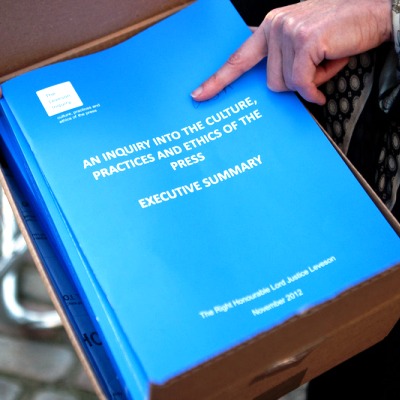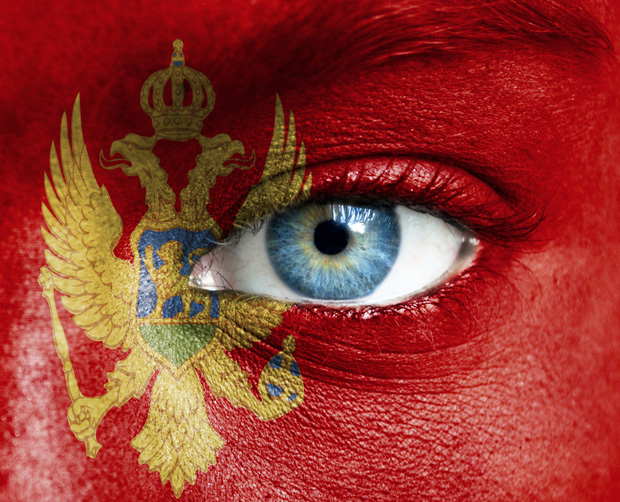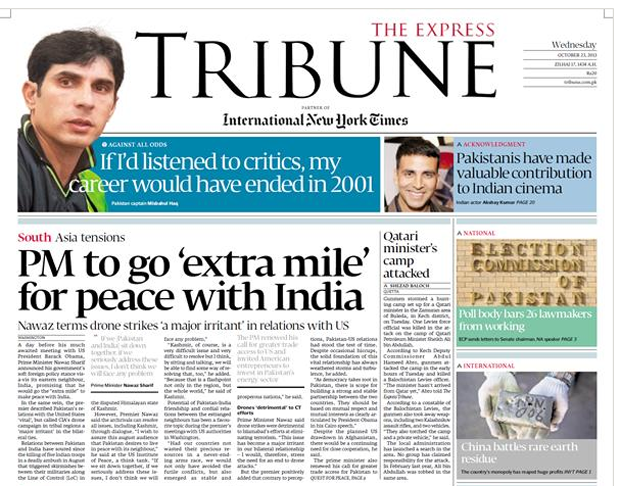24 Oct 2013 | About Index, Campaigns, Press Releases
‘If Angela Merkel does not like the idea of having her phone monitored by the NSA then she needs to do something about it.’
Following allegations that the NSA monitored the mobile phone of the German Chancellor Angela Merkel, Index on Censorship demands that the European Union’s leaders address the issue of mass surveillance when they meet at the EU summmit.
Earlier this week, Index delivered a petition to the President of the European Council, Herman Van Rompuy demanding that the EU take a stand against mass surveillance by the US and other governments. The petition was supported by 39 free speech groups from acrss the world and the thousands of signatories included writer and actor Stephen Fry, activist Bianca Jagger, writer AL Kennedy, artist Anish Kapoor and blogger Cory Doctorow. The petition was also delivered to Dalia Grybauskaitė, the President of Lithuania, who currently hold the Presidency of the Council of the EU.
Marek Marczynski, Director of Campaigns and Policy at Index on Censorship said:
‘If Angela Merkel does not like the idea of having her phone monitored by the NSA then she needs to do something about it. It’s time for the EU’s leaders to condemn and put an end to the mass surveillance of European citizens’ private communications by the NSA, GCHQ and other government agencies. They must act now to stop these attacks on our rights to freedom of speech and privacy.’
24 Oct 2013 | Media Freedom, News
This is a crosspost from WAN/IFRA
COMMONWEALTH PRESS UNION MEDIA TRUST, London, UK
FIPP – THE WORLDWIDE MAGAZINE MEDIA ASSOCIATION, London, UK
INTER AMERICAN PRESS ASSOCIATION, Miami, USA
INTERNATIONAL ASSOCIATION OF BROADCASTING, Montevideo, Uruguay
INTERNATIONAL PRESS INSTITUTE, Vienna, Austria
WORLD ASSOCIATION OF NEWSPAPERS & NEWS PUBLISHERS, WAN-IFRA, Paris, France; Darmstadt, Germany
WORLD PRESS FREEDOM COMMITTEE, Paris, France; Washington DC, USA.
Your Majesty
For more than three centuries since Britain abolished the last set of statutory controls on the press in 1695, the United Kingdom has been a consistent champion of the most crucial freedom of all – freedom of expression – and a beacon of liberty across the world.
Freedom of expression was central to the European Convention of Human Rights which Britain helped draft. It is part of the Universal Declaration of Human Rights to which the UK is a signatory. It is a core belief in the Commonwealth Charter which Britain inspired. Free speech and freedom of expression have throughout the 20th and 21st centuries therefore been at the core of Britain’s international commitments, of its leadership of the free world, and of its international reputation as a liberal democracy.
Yet all that is now in danger. No one should be in any doubt that the proposed Royal Charter which politicians are forcing Your Majesty to sign is, despite the camouflage, in reality a set of repressive statutory controls being imposed on the press against its will. That should not be the function of a Royal Charter.
Some will argue that it is just intended to establish a body to oversee an independent regulator. But by laying down rules about how that regulator must work and how the ethical Codes that bind the press should be written this toxic Charter brings Parliament for the first time ever to the heart of the newsroom. It breaches the fundamental principle that politicians must never get involved in editorial content regulation. And it lays the foundation for fully fledged statutory controls.
That will have a chilling impact on journalism throughout the United Kingdom – from the biggest national newspapers to the smallest local and regional papers and magazines in the four nations of your country – weakening democracy as a result.
But far more important to us is the impact of your actions across the globe. The world still follows Britain in so many areas. If the UK moves to control the press through the force of law then it will have a terrifying knock-on effect throughout the Commonwealth and much of the developing world where Britain has a key leadership role. The fact that this is being done by Royal Charter – an instrument traditionally used to grant rights, not to curtail them – will make that infinitely worse because of the respect in which You personally, and the Crown institutionally, are held throughout the world.
The actions of Britain’s Parliament will be used as an excuse by those who want to muzzle the press in their own country and stifle the free flow of information – and there are many governments who would love to do so. And it is your name, Your Majesty, that will regrettably be taken in vain. “If it is good enough for the Queen, it is good enough for us.”
Already we have seen the chill winds of what is happening in the UK in South Africa, Botswana and Sri Lanka. Many more will follow.
This issue is of huge importance for freedom of expression in the UK. It is important for Britain’s standing in the world. But above all it is important for the impact on countries not nearly so lucky as the many of us in Europe who until now have enjoyed fundamental freedoms.
At the Commonwealth Heads of Government meeting next month in Sri Lanka, the British Government – with The Prince of Wales as your representative – should be campaigning for the protection and expansion of free expression throughout the Commonwealth, not least in countries like Rwanda, Singapore and Sri Lanka itself, which persistently lag at the bottom of world press freedom indices alongside Syria and North Korea. Further, the British Government, which decriminalised defamation in 2009, should also take strong steps encouraging Commonwealth countries to repeal criminal defamation laws. But Britain will be in no position to do that if you have signed a Royal Charter which will be seized on by enemies of free speech everywhere eager to impose similar controls. Britain will have abrogated its rights and the world will be worse off for that.
We urge you, Ma’am, as the final guarantor of freedom of expression across the UK and your Commonwealth, not to sign this Charter.
Signed by the following members of the Coordinating Committee of Press Freedom Organisations:
COMMONWEALTH PRESS UNION MEDIA TRUST, London, UK;
FIPP – THE WORLDWIDE MAGAZINE MEDIA ASSOCIATION, London, UK;
INTER AMERICAN PRESS ASSOCIATION, Miami, USA;
INTERNATIONAL ASSOCIATION OF BROADCASTING, Montevideo,
Uruguay;
INTERNATIONAL PRESS INSTITUTE, Vienna, Austria;
WORLD ASSOCIATION OF NEWSPAPERS & NEWS PUBLISHERS,WAN-IFRA, Paris, France, Darmstadt, Germany;
WORLD PRESS FREEDOM COMMITTEE, Paris, France, Washington DC, USA.
24 Oct 2013 | Europe and Central Asia, Montenegro, News

Montenegro is first in line after Croatia to enter the EU, according to some European politicians and parliamentarians; a leader in the Balkan region. But the country’s press is under attack, with Prime Minister Milo Djukanovic leading the line in cracking down on the region’s media.
In the latest Reporters Without Borders Press Freedom Index, Montenegro placed 113th out of 179 countries – a ranking that has deteriorated year on year. Slovenia, a neighbour and EU member, is ranked 35th, and Serbia and Croatia are also far ahead. Even Bosnia and Herzegovina, which by many other parameters unfortunately is behind all of the Balkans, rates well ahead of Montenegro at 68th.
This situation is easily explainable. Only in Montenegro has the rule not changed since the fall of the Berlin Wall. For 24 years the power has been held by the same man – Djukanovic. He is the only one from the generation of ex-Yugoslavian war leaders who is still active in politics. He perceives the media as the greatest threat to his absolute rule.
Over the past few years alone, the founder and editor of a daily newspaper has been killed and seven editors and journalists have been physically assaulted. A number of cars belonging to Vijesti, the independent daily newspaper I co-founded, have been set on fire.
Not only have none of these criminal acts been properly investigated, but the authorities and their institutions have done everything in their power to render the investigations meaningless and to ensure that real culprits are not touched. This has increased self-censorship among journalists; many of them are very concerned by the fact that those who commission the attacks seem untouchable, hidden at the very top the government and the mafia circles close to it.
On 1 September 2012, the fifteenth anniversary of the founding of Vijesti, a director, editor, journalist and photographer from the paper were all attacked. This was a warning to their colleagues not to see what they see and write about what is obvious.
Journalism should be a simple and responsible profession that protects the public interest and defends the society from abuses of the powerful and privileged. But in light of the state of media freedom in Montenegro, practicing journalism has been described by representatives from the Council of Europe as ‘a heroic feat’.
When physical assaults have not delivered the expected results, Djukanovic and his regime have switched to financial ones. He forbade the government, state institutions, municipalities and public companies to advertise in Vijesti. A number of private companies that are close to the prime minister, or whom he can intimidate through tax inspections, were “advised” to avoid us. This has caused millions of Euros worth of financial damage to the paper.
On the other hand, he has relentlessly poured state money into the low-circulation national newspaper Pobjeda, which would otherwise have gone bankrupt a long time ago. He has also launched a TV station with cheap programmes in order to compromise the sustainability of the independent TV station.
Napoleon once remarked: “Four hostile newspapers are more to be feared than a thousand bayonets.” Our newspaper does not consider anyone to be its enemy. However, the all-powerful politicians whose irresponsibility and corruption we report on, perceive us as such. To that we tell them the problem is not on our side – if you do not want to have bad things published on the front page, then don’t do bad things!
Europe has a role to play in this situation. We know that freedom of speech is one of the key conditions for progressing in the European integration, because without free media there is no democratic society. For years, the European administration has been seeking concrete results from Montenegro in the fight against organised crime and corruption. Prime Minister Djukanovic has developed a system that is tantamount to a political trade-off. He is completely cooperative and obedient to Brussels and Washington when it comes to regional issues, such as the recognition of Kosovo, support of the Bosnian state as envisioned in the Dayton Agreement and cooperation with the International Criminal Tribunal for the former Yugoslavia.
In exchange, the US and EU turn a blind eye while the government harangues civil society and independent media.
It is time for an end to this cynical policy. European officials, whether they are in Brussels or Paris, Berlin and London, should start taking stock of the real situation and status of democracy and human rights in Montenegro. Otherwise, Djukanovic will succeed in a what should be an impossible mission – obtaining full EU membership for Montenegro, while simultaneously extinguishing independent media in this new state.
This article was originally posted on 24 Oct 2013 at indexoncensorship.org
23 Oct 2013 | News, Pakistan, Religion and Culture

It’s been over two weeks now that Rana Tanveer, a reporter in Lahore at the English daily, Express Tribune, has not gone to work.
Early this month, he received a one-page letter, in the Urdu language, terming him an apostate and accusing him of writing in favour of Ahmadis and Christians.
“It warned me to stop writing ‘against’ Islam and seek ‘forgiveness’ from God,” he said over the phone from his home in the Punjab province.
It further warned him that if he did not desist, he would be killed — since that is the punishment of a person declared an apostate.
“I can’t work like this; no reporter can, if he cannot roam about freely,” said Tanveer.
Initially, he did not take the letter too seriously, but a week after he received the letter, he felt he was being followed on a motorbike. “It’s a scary experience,” he conceded, adding: “I made a few turns just to be sure that this was not a figment of my imagination, but the man on the motorbike persisted. I knew then that this was no joke and I had to do something.”
His seniors at work advised him to at least file a complaint with the police, which he did, but he did not name anyone “due to security reasons”.
“My editor told me to keep a low profile and not to report on minority issues for a while, and if I had to, it would go without by byline,” said the journalist.
Farahnaz Zahidi, features editor in the same paper as Tanveer’s feels very strongly about one’s byline being taken away. “As a journalist, perhaps the biggest satisfaction in this otherwise perilous and often under-paid profession is one’s by-line; it also lends credibility.”
However, she added, by shooting the messenger, society loses out. “The right to information is threatened when media persons threatened.”
Tanveer finds a plethora of minority rights abuses strewn around his city but says few journalists feel inclined to take up these issues.
“Mine seems to be a lone battle,” he said. “I am often scorned by my colleagues for reporting ‘chooras’ (derogatory term used for Christians, also among the poorest sections of society and consigned to menial janitorial jobs) and ‘Qadianis’ (also a derogatory name for those belonging to the Ahmadi faith, declared non-Muslims by state in 1974),” he said.
But it’s not indifference to these rights issue alone that keeps journalists from reporting on them. Senior journalist and communication expert, Babar Ayaz, says it is also quite dangerous to write about “the victimisation of Ahmadis, Christians or Hindus”.
Nevertheless, he added: “Journalists have to write what is right. Threats and killings are hazards of this job living in an increasingly intolerant society.”
He remembered when he wrote a piece on the attack on the massacre of Ahmadis in Lahore [in May 2010], he received a couple “abusive phone calls”. He also received some angry messages on a chapter in his book titled: What’s Wrong With Pakistan? The book, which was published in August criticises Islamic laws in Pakistan.
“But we are small fry,” said Ayaz. “When Nawaz Sharif expressed condolence on the killings of ‘our Ahmadis bhais [brothers]’ some mullahs said that by calling them ‘bhai’ he had committed a sin. The extremists have no logic but they have muscle power,” he added.
According to Aamer Mahmood, who heads the press section of the Ahmadiyya Jammat, and is in regular touch with several journalists: “The fear among them is palpable. While many empathise with us for the way our rights are trampled, they say their hands are tied. Some are scared of the wrath of the extremists; others fear they will lose their jobs.”
“It is indeed becoming more dangerous to write on these issues, in any language,” agreed Kamila Hyat, a rights activist and former editor of English daily The News. “I believe that while sections of the English language press remain relatively liberal, more and more are succumbing to the bias and intolerance we see everywhere,” she pointed out.
“The manner in which the ‘agenda’ for news is set, notably by the electronic media, also shoves minority issues to the sidelines, and intolerant mindsets exist everywhere — even among the educated,” she said.
With seven journalists having lost their lives since January this year, according to the 2013 Impunity Index report by the Committee to Protect Journalists (CJP), just last year, Pakistan which was ranked tenth, has moved two spots up at eighth position for the worst place for the press. Further, it has been declared more dangerous than Russia, Brazil, Nigeria and India.
According to the CJP, 28 Pakistani journalists have been murdered since 1992 in connection with their work, 27 of whom were killed with impunity. The deaths of 24 additional killed during the same period cannot be confirmed as “targeted.”
“Doing journalism in Pakistan is not easy, which is ranked the third most dangerous country for reporting after Syria and Egypt,” observes Mazhar Abbas, former secretary general of the Pakistan Federal Union of Journalists, a formidable voice fighting for the rights of journalists. While journalists continue reporting despite threats particularly those working in the Federally Administered Tribal Area (FATA), Balochistan and even in the southern port city of Karachi, Abbas said, reporters from the Punjab province seemed comparatively safer.
But not anymore, it seems.
Abbas said every threat should be taken seriously. “The letter to Tanveer could be an individual act or from a group. The government and administration need to probe this matter and find out about the person who sent this letter in the first place. Journalists reporting on sensitive issues should do so responsibly; their reports should be factually correct with minimum expression that can lead to stoking up controversy.”
This article was originally posted on 23 Oct 2013 at indexoncensorship.org



